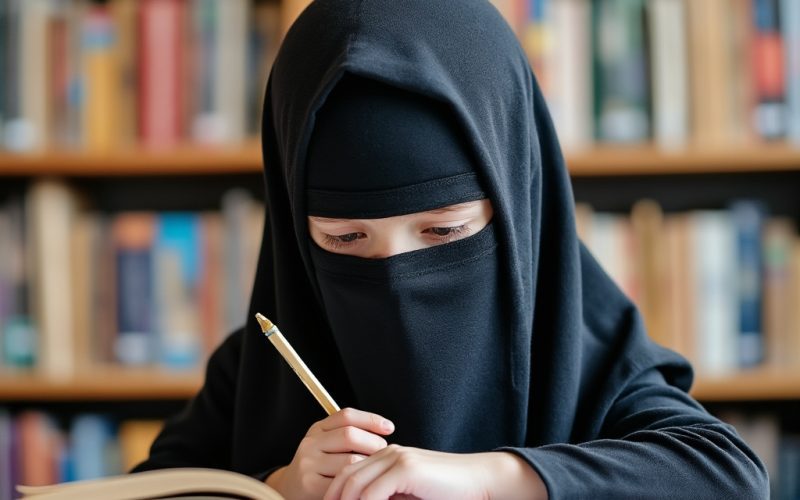
Three years after the fall of Kabul, Afghanistan remains the only country in the world where secondary and higher education is explicitly banned for girls and women. According to new UNESCO data released in 2024, 1.4 million Afghan girls have been deliberately barred from receiving secondary education since the Taliban took control in 2021. This grim reality is compounded by a drastic decline in primary school enrollment, affecting boys and girls alike, signaling a severe educational crisis.
UNESCO’s Latest Findings
As of August 2024, the number of Afghan girls denied education continues to rise, with an estimated 2.5 million girls now out of school—around 80% of the total school-age female population. UNESCO’s Director-General Audrey Azoulay called the situation “unacceptable”, emphasizing that education is a basic human right that should never be compromised. The data also shows that at least 300,000 more girls reached the prohibited age of 12 this year alone, adding to the alarming figures.
🔴 Girl’s #RightToEducation is non-negotiable.
— UNESCO 🏛️ #Education #Sciences #Culture 🇺🇳 (@UNESCO) October 11, 2024
BUT since the seizure of power in 2021, millions of Afghan girls have been denied the education by the de facto authorities.
This #DayOfTheGirl, join UNESCO’s call to #LetAfghanGirlsLearn.https://t.co/kKcu71XFmr pic.twitter.com/MqdVukAu1I
The Collapse of Primary Education
The situation in primary education is equally dire. While girls under 12 are still allowed to attend school, the total number of students in primary education plummeted by 1.1 million, with 5.7 million students enrolled in 2022, compared to 6.8 million in 2019. The decision to ban female teachers from teaching boys has worsened an already existing teacher shortage, further discouraging parents from sending their children to school. In a nation already struggling with economic instability, this decline in school attendance risks triggering a rise in child labor and early marriages.
The Human Toll
The emotional and psychological toll of these bans is profound. Afghan girls describe feeling “mentally dead” as they watch their dreams of education slip away. Many girls have taken it upon themselves to educate others and find hope through underground classes, defying the Taliban’s misogynist policies. However, as long as the bans persist, millions of girls remain locked out of school, limiting not just their personal futures but also the future of the entire nation.
A Bleak Future for Higher Education
Afghanistan’s higher education system is similarly collapsing, with university enrollments halved since 2021. This sharp decline in students will soon result in a shortage of skilled graduates, threatening the country’s future development. The lack of access to education, particularly for women, further entrenches societal inequalities and limits Afghanistan’s ability to build a workforce capable of addressing the nation’s complex challenges.
UNESCO’s Response: Alternative Learning Programs
In response to this crisis, UNESCO has ramped up efforts to provide alternative learning opportunities for Afghan girls and women. Working in 20 provinces, UNESCO has trained over 1,000 facilitators, including 780 women, to deliver literacy courses. These programs have reached 55,000 individuals, mainly young girls, in nearly 1,900 villages. However, given the vast number of students out of school, the challenges ahead remain monumental.
Regional and Media Support Initiatives
Beyond Afghanistan, UNESCO is working in neighboring countries such as Pakistan, Tajikistan, and Iran to support Afghan refugees through teacher training and educational resources. UNESCO has also invested in distance learning via radio and television, providing Afghan media outlets with the financial backing and technical expertise to develop educational content. Initiatives like the Begum Organization for Women have helped reach approximately 17 million Afghan citizens, providing them with crucial learning opportunities in an increasingly restrictive environment.
The Call for Global Action
Despite the innovative efforts to provide alternative education, UNESCO underscores that nothing can replace the value of in-person schooling. The organization continues to urge the international community to maintain pressure on the de facto authorities in Afghanistan to fully restore access to education for girls and women.
Profound Violation of Basic Human Rights
Afghanistan’s ongoing educational crisis is a profound violation of basic human rights, with long-lasting consequences for the nation’s development. As UNESCO and its partners strive to mitigate the damage, the world must continue to advocate for the full restoration of education rights for Afghan girls and women. The future of an entire generation depends on it.
